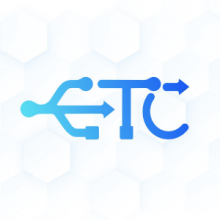
There are 14 Companies in France
that provide C development Services!
France's IT services market is the sixth-largest in the world. It currently occupies around 4.4% of the global IT services market. The market value of IT services accounts for around 45.7% of the overall market of IT. The IT services market is expected to grow at a CAGR of around 16.45% from 2025 - 2030, potentially reaching $81.21 billion by 2030.
Discover Top IT Companies in France specialized in C and other related services. Find the best IT service providers for your projects.
C is a high-level programming language with a long and storied history. It was created in the early 1970s and is known for its simplicity, power, and versatility. C has played a foundational role in the development of many other programming languages and is widely used in various software development domains.
Handpicked companies • No obligation to hire • 100% risk-free
Featured Companies in France
This month, the following C development companies managed to provide an outstanding service and support. It's worth taking a look.
Fire Bee Techno Services is an ISO-Certified Blockchain and AI Development Company In india and across the world with 13+ years of experience.
Explore Top C development Companies in France
Techgropse is a leading Mobile App and Web Development Company, dedicated to turning innovative ideas into remarkable digital solutions. 500+ Clients

Persistent Systems Verified Company
Rhône-Alpes, France Head office in: India
See Beyond, Rise Above
Services:
Lightning-fast IT solutions for your business
Your go-to digital marketing agency for impactful collaborations
Services:
Established in 2000, Euro Tech Conseil is a premier software development firm renowned for crafting intricate, tailor-made IT solutions.
Avempace is a design center for embedded systems and IoT solutions with a proven expertise of real time audio/video communication, wireless and RFID
Services:
AppCraft is a mobile product agency, focused on strategy, UI/UX design and native app development. We work since 2011 and have published more than 200...
Filter C development Companies in France by Cities
Find the right tech company near you or from a specific city. Some of the best companies might be located in smaller cities.
Find more C development companies around the world
TechBehemoths is the world's most advanced and user-friendly platform to match IT Companies with real clients without hustle.
The French ICT Industry: Data & Insights
France's IT services market is the sixth-largest in the world. It currently occupies around 4.4% of the global IT services market. The market value of IT services accounts for around 45.7% of the overall IT market, and is expected to grow from over $41 billion in 2016 to over $64.27 billion in 2025.
The IT services market grew at a CAGR of around 1.1% in the historic period and is predicted to grow at a CAGR of around 16.45% from 2025 - 2030. potentially reaching $81.21 billion by 2030.
Why Should You Work With a French IT Company?
France’s biggest advantage in the region is the growing number of young professionals who are enrolled in the IT industry. In Western Europe, France has the lowest outsourcing rate and is relying on its own professionals mainly to provide the entire range of IT services. Along with the increasing number of human resources, the French IT infrastructure is among the leading in Europe, and having these factors combined, France has the third-largest IT sector in Europe, with a share of 16.5% in 2025.
What to Be Aware of When Working With French IT Companies
Good IT infrastructure, well-developed business culture, and skilled professionals - France has it all to continue its IT growth in the following years. So, what’s the missing puzzle that makes France the third-largest IT market in Europe and not the first?!
Basically, the cultural differences and especially linguistic rigidity make French companies less attractive. In this way, the IT industry continues to rely on Francophone and French-speaking countries, but with good progress made, especially by young companies and IT startups that have started to focus more on development and growth and less on cultural aspects.
How Reliable Are French IT Companies
The strong business culture and tradition, along with local specialties made French companies some of the most trustworthy in Europe, and in the world. Looking back at the European IT market share, France has an incontestable reputation, and it attracts all types of businesses to have IT services done there, by local professionals.
How the French IT Industry Relates to the Neighboring Countries
With Germany and the UK in the leading positions, France’s IT industry continues to grow and possibly pose a good challenge to the UK IT industry. After Brexit, a consistent number of IT companies fled from the UK and relocated to Germany, Ireland, and France, giving to their last chance to take second place in the European IT market share. In the long run, France’s IT industry has two big competitors - the UK and Spain, which share the neighboring position in the European IT ranking.
What is C and what are its benefits for your projects?
C is a high-level programming language with a long and storied history. It was created in the early 1970s and is known for its simplicity, power, and versatility. C has played a foundational role in the development of many other programming languages and is widely used in various software development domains.
There are lots of IT companies that incorporate C programming into their service offerings. These companies often excel in low-level system programming, embedded systems development, and performance-critical applications. Notable examples include IBM, Oracle, and Intel, which utilize C in various aspects of their software and hardware development processes.
C service providers employ a range of development tools and technologies. They may use Integrated Development Environments (IDEs) like GCC and CLANG for C programming. It's essential to distinguish between C and C#: C is a procedural language, while C# (C-sharp) is an object-oriented language developed by Microsoft, primarily for Windows application development.
Several programming languages are closely related to C, including:
1. C++: An extension of C that adds object-oriented programming features.
2. Objective-C: Commonly used for macOS and iOS application development.
3. Rust: Known for memory safety and system-level programming.
4. Go (Golang): Developed by Google, suitable for systems and web programming.
5. Assembly Language: Provides low-level control over computer hardware.
Selecting the right IT company that leverages C for your project involves considering factors such as the company's expertise in C development, previous projects, client references, and industry focus. Assess their capability to deliver efficient, reliable, and secure solutions tailored to your specific requirements.
C programming is essential for various types of projects, including:
1. Operating Systems Development: Building the core components of operating systems.
2. Embedded Systems: Developing software for devices like smartphones, IoT devices, and automotive systems.
3. Game Development: Designing game engines and graphics libraries.
4. Compilers and Interpreters: Creating programming language compilers and interpreters.
5. Real-time Systems: Building software for applications requiring precise timing, such as robotics and aerospace.
6. Networking and Protocol Development: Implementing network protocols and communication software.
7. High-Performance Computing: Developing scientific and engineering applications that demand speed and efficiency.












